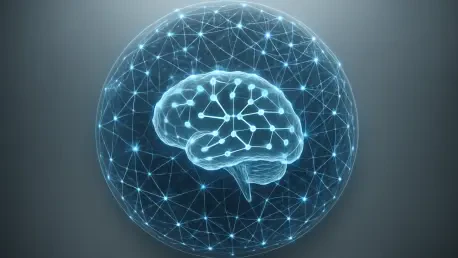Amidst rapid technological advancements, artificial intelligence has emerged as a transformative force across various sectors, including education, healthcare, and defense. Industry leaders recognize the potential of AI-driven innovations, and these developments pose significant changes and challenges. This roundup article delves into diverse expert opinions on how AI is currently shaping these crucial domains, providing insights into the opportunities and ethical considerations involved.
Revolutionary Changes in Education
AI’s integration into education is widely seen as a revolutionary force, reshaping classrooms and learning experiences. Numerous experts highlight AI’s role in offering personalized learning opportunities, ultimately boosting student engagement. Tools and platforms powered by AI analyze students’ performance and adapt educational content to meet individual needs, enhancing learning outcomes.
However, implementing AI in classrooms is not without controversy. Privacy concerns loom large, with debates on who controls student data and how it’s used. Ethical considerations are emphasized by scholars warning against over-reliance on technology, which may diminish human elements crucial to education. The industry continues to seek a balance between innovation and safeguarding students’ rights.
AI-Driven Innovations in Healthcare
The healthcare sector is undergoing a significant transformation with AI-driven technologies enhancing capabilities in diagnostics, treatment planning, and patient management. Advanced algorithms facilitate early and accurate diagnoses, leading to more effective treatment strategies. Testimonials from healthcare practitioners illustrate tangible improvements in patient outcomes attributed to AI systems.
While the technological benefits are remarkable, healthcare’s integration with AI raises ethical questions regarding data privacy and the evolving nature of the doctor-patient relationship. Security of patient data remains a critical issue as AI systems become more influential in health management. Clinicians and policymakers grapple with striking a balance between technological advances and ethical accountability in healthcare delivery.
Strategic AI Implications in Defense
AI’s role in defense is marked by strategic enhancements that boost operational capabilities, including defense logistics and surveillance systems. Experts point to AI’s capacity to streamline operations, leading to cost-effective and efficient processes that bolster national security. Implementing AI into military strategies, some argue, creates a competitive edge.
Nonetheless, AI’s use in defense provokes intense debate surrounding ethical considerations, particularly concerning autonomous weapons and AI-driven warfare. Discussions on geopolitical implications highlight the need for robust policies and frameworks to govern AI application safely and responsibly. Stakeholders stress the importance of international cooperation to address these ethical challenges effectively.
Navigating Ethical Considerations in Diverse Sectors
Across education, healthcare, and defense, ethical challenges present themselves uniquely, demanding tailored approaches. Regional frameworks, from American policies to European and Asian standards, reveal variations in how AI ethics are addressed. Experts suggest that future regulations should consider sector-specific needs while maintaining universal ethical principles.
As AI continues to evolve, stakeholders are advised to stay informed about ongoing developments in ethics and regulatory measures. By fostering dialogue across sectors, industry leaders can pave the way for responsible AI integration that safeguards human interests while maximizing technological benefits.
Conclusion: Harnessing AI Responsibly
The transformative potential of AI in education, healthcare, and defense is evident, with each sector experiencing significant advancements and challenges. As AI technologies redefine traditional practices, stakeholders are urged to develop actionable strategies that ensure thoughtful and ethical integration. Embracing AI’s capabilities while navigating its risks necessitates industry collaboration and informed policymaking. For those seeking further reading, exploring sector-specific case studies and regulatory frameworks will provide valuable insights into AI’s evolving role in society.









